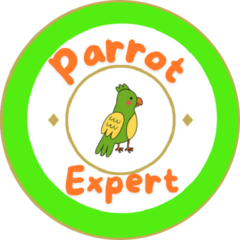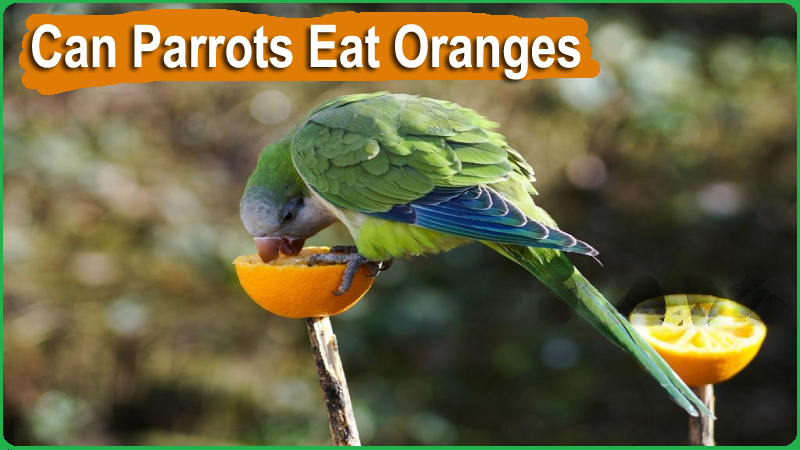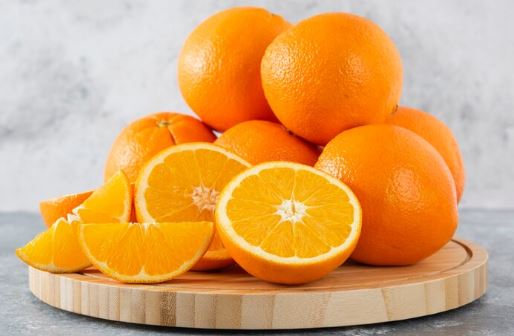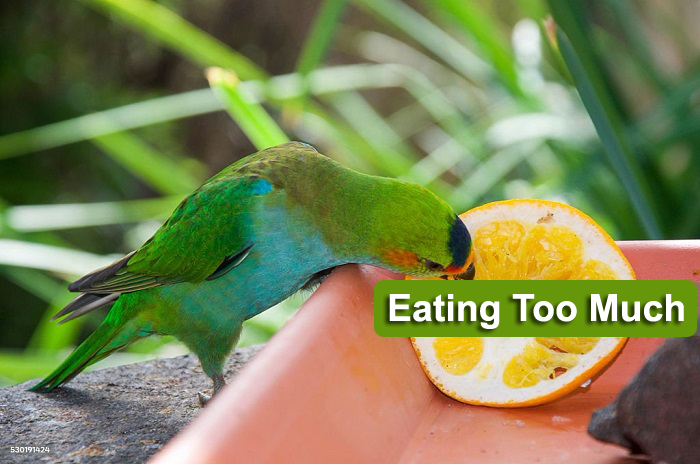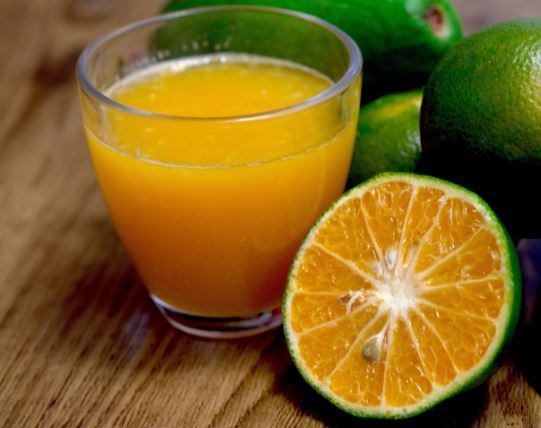Most of people have wondered about ‘Can parrots eat oranges or not?’ Parrots are colourful and most intelligent creatures that you can keep as pets in the home.
Now, what are you thinking about feeding oranges to parrot? Can parrots like to eat oranges safely and healthily? Let’s come look at near on this!
Don’t worry! Here, we will try to cover all possible stuffs of parrots eat oranges together. What amount is safe of this citrus fruit can your parrot have? How do you best way to feed your parrot with oranges? Can parrots get any negative effects of oranges? Let’s come answer all these questions together with ease!
Are Oranges Safe for Parrots?
Yes! Oranges are safe for parrot’ health, if offered in little amount. These kinds of citrus fruits are enabled with vitamin C, minerals, fiber, and antioxidants that help to boost a parrot’s immune system, and aid digestion. Oranges also consist the high water that helps with hydration, especially in summer days.
Oranges contain natural sugars, if parrots consumed in excess, then can lead to obesity and other health issues. Beside of this, the orange’s acidity might cause digestive discomfort in some birds. To minimize of these risks, you should serve oranges as an occasional treat rather than a regular.
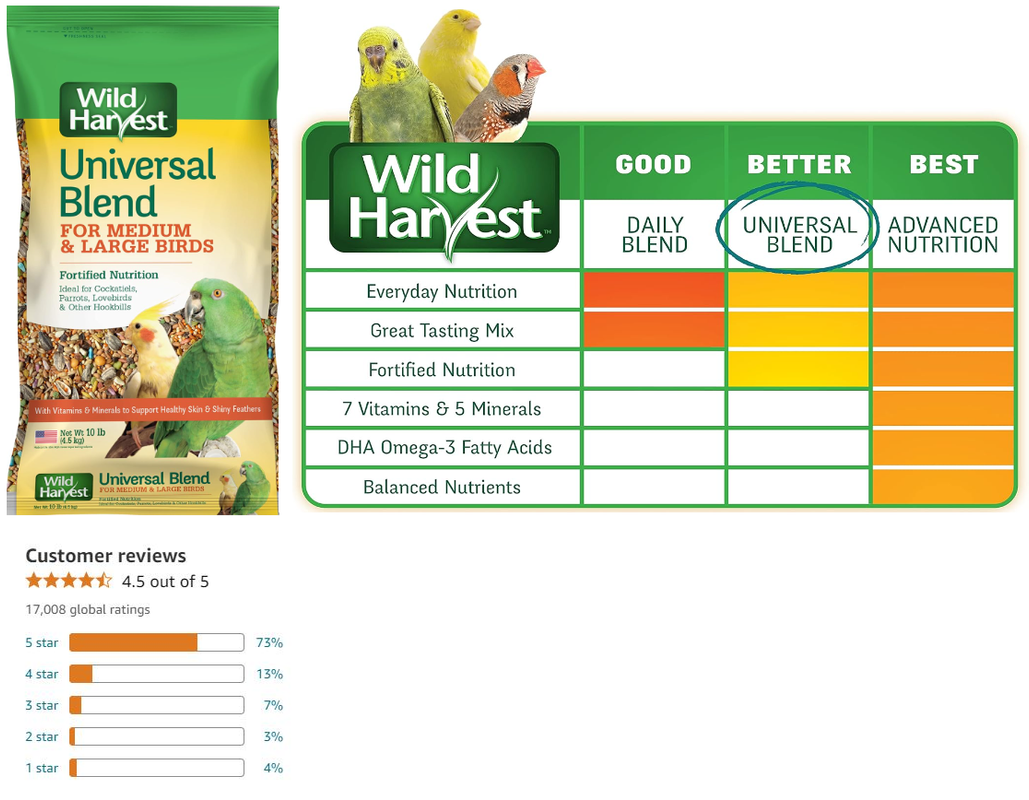
When you allow oranges to your beloved parrot, should be removed the seeds and peel. You can start with small pieces to observe how your parrot reacts. Serve them into small slice or a few segments once or twice a week. You should always monitor your parrot for any signs of adverse reactions, in behavior or digestion.
Benefits of Eating Oranges to Parrots
Oranges can be a healthy addition to a parrot’s diet when allowed in moderation. Here are several benefits of including oranges in your parrot’s diet:
Also Read: African Grey Parrot Diet and Nutrition in Captivity and Wild
Rich in Vitamin C
Oranges are an excellent source of vitamin C that supports the immune system. Parrots are capable to produce their own vitamin C; extra grab can contribute to strength their immunity.
Hydration
Oranges are in high water content that aids to keep parrots hydrated, especially during hot weather. Maintaining healthy bodily functions, hydration plays the vital role.
Dietary Fiber
The fiber in oranges can support for digestion and helping to maintain a healthy gut. It prevents the constipation and helping the regular bowel movements. So, it contributes to overall digestive health of parrots.
Antioxidant Properties
Oranges also pose antioxidants, such as flavonoids and carotenoids that help to safe cells from damage caused by free radicals. This can get minimize the risk of chronic diseases and support to longevity.
Essential Nutrients
Oranges offer many essential vitamins and minerals such as potassium, vitamin A, and folate that help to maintain heart health, vision, and cellular functions.
Low-Calorie Treat
Oranges are relatively less amount in calories that making them a healthy treat as compared to higher-calorie snacks. So, they can be added in parrot’s diet to balance it without getting weight gain.
Natural Sugar
Oranges are also packed with natural sugars that can serve a quick energy boost. But, to avoid excessive sugar consumption, you can balance this with adding other foods.
Nutritional Value of Oranges for Parrots
Here’s a table summarizing the nutritional value of oranges for parrots:
Also Read: Can Parrots Eat Bananas? Yes or Not
| Nutrient | Amount Per 100g | Benefits for Parrots |
|---|---|---|
| Calories | 47 kcal | Provides energy |
| Water | 86.75 g | Hydration |
| Carbohydrates | 11.75 g | Energy source |
| Sugars | 9.35 g | Natural sugars for energy |
| Dietary Fiber | 2.4 g | Aids in digestion |
| Protein | 0.94 g | Essential for growth and repair |
| Fat | 0.12 g | Minimal fat content |
| Vitamin C | 53.2 mg | Boosts immune system |
| Vitamin A | 11 µg | Good for vision and skin health |
| Folate | 30 µg | Important for cell division and growth |
| Potassium | 181 mg | Supports heart and muscle function |
| Calcium | 40 mg | Bone health |
| Magnesium | 10 mg | Metabolic function and bone health |
| Phosphorus | 14 mg | Bone health and energy production |
| Iron | 0.1 mg | Important for blood production |
Risks of Eating Too Many Oranges
While oranges can be a healthy treat for parrots, over-consumption can lead to several health issues. Here’s a detailed look at the potential risks:
High Sugar Content
Excessive sugar intake can lead to weight gain and obesity. Due to this, it can get cardiovascular diseases and joint problems.
Continuous high sugar consumption can elevate the risk of diabetes that leading to unstable blood glucose levels.
Acidity
High citric acid levels in oranges can cause digestive discomfort that pose stomach pain, bloating, and diarrhea issues.
Citric acids can bad impact on the beak, weakening it. It may get less effective for eating and grooming.
Imbalanced Diet
A diet high in oranges can lead to the displacement of other essential nutrients, causing the imbalanced diet.
Due to Over-consumption of oranges, it can get deficiencies in other critical nutrients like proteins.
Allergic Reactions
Some parrots may be allergic to citrus fruits, which can manifest as skin rashes, itching, or respiratory issues.
Regular keep monitoring, when introducing oranges to quickly identify any adverse reactions.
Pesticide Exposure
Non-organic oranges may have pesticide residues on their skins, which can still be present on the flesh even after peeling.
Pesticide exposure are more harmful to parrots that leading to long-term health problems. Choosing organic options or washing the fruit thoroughly can mitigate this risk.
How Often Parrots Can Eat Oranges?
Parrots take enjoy oranges as an occasional treat, but in moderation. You should offer oranges no more than once or twice a week.
When you serve them, should be a small slice or a few segments. It helps to remain parrot’s overall diet balanced and diverse.
You should introduce oranges into a parrot’s diet as gradually. Always remove the seeds and peel the orange, feeding only the flesh to your beloved parrot.
Can Parrots Eat Orange Peels?
As you know that oranges are a healthy treat for your parrots, but the question is they can safely consume the orange peel or not. General, expert never recommend allowing orange peels to parrots. Because, they consist higher essential oils, pesticide residues, and other compounds that may be potentially dangerous to these colorful birds.
The peel can also be difficult for parrots to digest, potentially that may lead to gastrointestinal issues. If you do choose to feed orange peel to your parrot, then it is organic and thoroughly washed to remove any potential contaminants. Besides of this, you have to provide small quantities and keep eye on your parrot’s reaction closely.
Can Parrots Have Orange Juice?
You should not offer orange juice to parrot, because it has rich sugar content, acidity, and lack of fiber. Orange juice lacks the benefits of whole fruit and often contains artificial additives that can get bad impact on parrots.
Also Read: Can Parrots Eat Grapes with {Seed and Peeps}? Yes or Not
If, you want to give orange juice, then must be freshly squeezed and diluted with water, but not a regular part of the diet.
Must take consultation an avian veterinarian before introducing any new foods to ensure they are safe and suitable for your parrot’s individual needs and species.
Are Dried Oranges Good Treat for Parrots?
OK! You can offer dried oranges as a treat to parrots, but in moderation. They retain many of the nutrients found in fresh oranges, such as vitamin C, fiber, and antioxidants, which can support a parrot’s overall health.
When allowing dried oranges; you ensure they are free from additives like sugars or preservatives that can be harmful to parrots.
Additionally, dried oranges can be sticky and tough, potentially posing a choking hazard or difficulty in chewing for some parrots.
Can Parrots Eat Orange Seeds?
Orange seeds should not be given to parrots, because they can pose a choking hazard, especially for smaller parrot species. The seeds are not necessarily toxic, but they are hard and difficult for parrots to digest.
Intake orange seeds can potentially cause digestive issues or intestinal blockages in some birds. So, you should always remove the seeds before offering any part of the orange to your parrot.
Types of Oranges for Parrots
There are several types of oranges that can be suitable for parrots, each with its own characteristics and flavors. Here are some common types:
Navel Oranges: Known for their easy-to-peel skin and sweet, juicy flesh, and seedless nature.
Valencia Oranges: Often used for juicing due to their high juice content and slightly tart flavor. Parrots may enjoy Valencia oranges for their juicy texture.
Blood Oranges: These oranges have a distinctive red flesh due to anthocyanin pigments. They offer a sweet and tangy flavor for parrots.
Cara Cara Oranges: Similar to navel oranges but with pinkish-red flesh.
Mandarin Oranges (Tangerines/Clementines): While not technically oranges, mandarins are closely related and popular among parrots for their sweet taste and easy-to-peel skin.
Guidelines: Feeding Orange for Parrots
Here are guidelines for feeding oranges to parrots, as following them:
Also Read: Can Parrots Eat Strawberries? Should Be Known
Moderation: Offer oranges as an occasional treat, typically once or twice a week.
Preparation: Remove seeds and peels, and provide only the flesh of the orange.
Introduction: Start with small pieces to monitor your parrot’s reaction.
Variety: Include oranges as part of a varied diet that includes pellets, seeds, nuts, and other fruits and vegetables.
Quality: Always choose fresh and ripe oranges. Wash them thoroughly to remove potential pesticide residues.
Monitoring: Observe parrot for any digestive issues or allergic reactions after introducing oranges.
Consultation: Seek advice from an avian veterinarian if you have concerns about feeding oranges or notice any unusual symptoms in your parrot.
FAQs (Frequently Asked Questions)
Can Frozen Oranges Be Fed to Parrots?
Yes! Frozen oranges can be fed to parrots after they are thawed to room temperature. Ensure they are fresh and free from additives.
Can African Grey and Quaker Parrots Eat Oranges?
Yes! Both parrots can eat oranges in moderation. Oranges offer essential vitamin C and other nutrients that are beneficial to their health. Remove seeds and peeps, then offer small pieces occasionally. Due to the high acidity and sugar content, avoid making oranges a regular part of their diet.
Can Baby Parrots Eat Oranges?
Consult with a veterinarian before giving oranges to baby parrots. They have more sensitive digestive systems, so take more time to develop it.
Final Note
At the final, we can say that as with other kinds of fruit, parrots can also eat oranges in sensible quantities. If, you feed too much them to your parrot; then could pose to an upset stomach or weight gain.
Also Read: Can Parrots Eat Carrots? (Yes or Not} Feeding Guide
If this article is fruitful for you, then please share it along with your friends, family members, pet lovers or relatives over social media platforms like as Facebook, Instagram, Linked In, Twitter, and more.
Do you have any experience, tips, tricks, or query regarding on this? You can drop a comment!
Have a Nice Day!!
